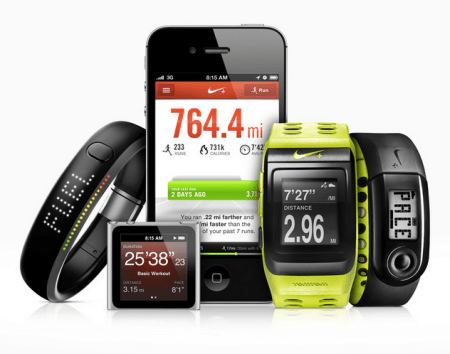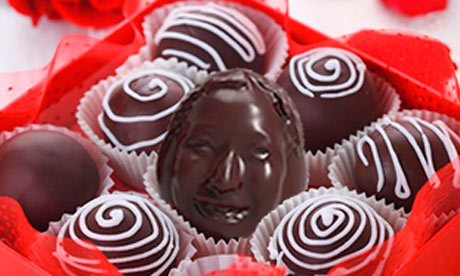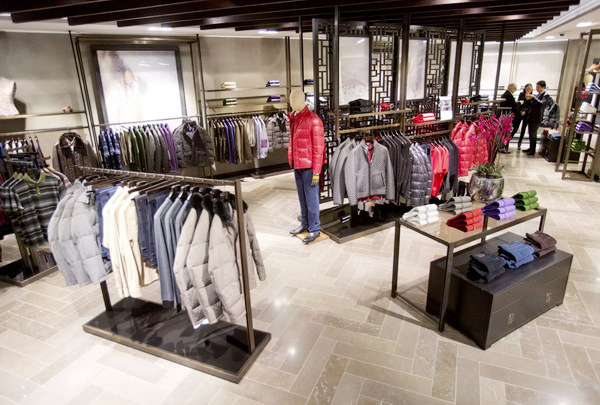The Italian coffee company Lavazza will open dozens of Lavazza Espression coffee shops around London in the coming years, part of its intense focus on the UK market.
Italian-style coffee has been trendy in the UK for some time, with Whitbread's Costa operating 1,300 shops, Starbucks operating 760 shops and Caffe Nero operating 400 shops. Add it all up, and one expert says these three chains hold a combined 52% of the UK coffee-shop market. These chains revived the UK coffee culture and helped educate consumers about great tasting espresso, capuccino and other hot (and cold) coffees that have become favourites.
Even so, if the market share numbers are correct, and coffee consumption continues to increase as strongly as in previous years, there's opportunity for innovation by independent shops and small chains that emphasise high quality.
The Independent recently listed the 50 best UK coffee shops, including indies like Allpress Espresso, Caravan and 6/8 Kafe, highlighting friendly service, superior coffee, special events and comfortable cafe ambiance. After all the years of enjoying chain coffee, many consumers are seeking out different places and tastes, partly for the novelty and partly to be among the first to discover something new and different.
One fast-growing new entrant is Harris & Hoole (above), which has 10 coffee shops and multimillion-pound backing from Tesco. Although the Tesco investment has sparked some controversy, the founders of Harris & Hoole explain that they had difficulty obtaining funding and Tesco's money doesn't represent a controlling interest. Watch for more H&H shops popping up all over London and beyond--and for independents that make great coffee or offer great ambiance.
Tuesday 29 January 2013
Friday 25 January 2013
Marketing chocolate in Japan (and beyond)
The market for chocolate in Japan is growing year after year, fueled by consumer interest in new flavours, status brands and personality plus.
Nestle makes unusual Kit Kat flavour combinations for Japan, but the product name is also meaningful: It sounds like kitto katsu or, roughly translated, 'surely win'. That's why so many students nibble on Kit Kat bars for good luck before taking their uni exams.
International brands with a luxury image are particularly desirable, in chocolate as in nearly every other product category in Japan. The upmarket French chocolatier Frederic Cassel recently created a kimono of chocolate to showcase its premium products, sold through three company stores in Japan.
La Maison du Chocolat is known in Japan for its ganache. Tailoring its products to local tastes, La Maison du Chocolat emphasises mild milk chocolate and caramel in Japan rather than the darker bittersweet flavours that sell so well in its French stores. Yes, this brand is on Facebook.
Sapporo-based Royce' is expanding beyond Asia, with creamy, fresh chocolates sold through company-owned shops in Brunei, Vladivostock and New York City. This brand's unique selling proposition is quality, including the use of farm-fresh milk sourced from farms surrounding its Hokkaido factory. Just getting started in New York, Royce' has only a few Facebook likes for that location.
Finally, with Valentine's Day only weeks away, an unusual new twist on chocolate has been emerged: The ability to mold chocolates with 3-D printed faces of the giver or the recipient. Not surprisingly, the chocolate faces have gotten a lot of media attention lately.
Nestle makes unusual Kit Kat flavour combinations for Japan, but the product name is also meaningful: It sounds like kitto katsu or, roughly translated, 'surely win'. That's why so many students nibble on Kit Kat bars for good luck before taking their uni exams.
International brands with a luxury image are particularly desirable, in chocolate as in nearly every other product category in Japan. The upmarket French chocolatier Frederic Cassel recently created a kimono of chocolate to showcase its premium products, sold through three company stores in Japan.
La Maison du Chocolat is known in Japan for its ganache. Tailoring its products to local tastes, La Maison du Chocolat emphasises mild milk chocolate and caramel in Japan rather than the darker bittersweet flavours that sell so well in its French stores. Yes, this brand is on Facebook.
Sapporo-based Royce' is expanding beyond Asia, with creamy, fresh chocolates sold through company-owned shops in Brunei, Vladivostock and New York City. This brand's unique selling proposition is quality, including the use of farm-fresh milk sourced from farms surrounding its Hokkaido factory. Just getting started in New York, Royce' has only a few Facebook likes for that location.
Finally, with Valentine's Day only weeks away, an unusual new twist on chocolate has been emerged: The ability to mold chocolates with 3-D printed faces of the giver or the recipient. Not surprisingly, the chocolate faces have gotten a lot of media attention lately.
Wednesday 23 January 2013
Will Ocado be a success?
Founded in 2000, the online grocery retailer Ocado wants to be known for 'quality groceries that won't cost the earth'.
Despite a promising start, including early adoption of apps for mobile ordering, the company has struggled financially over the years. This week, Sir Stuart Rose (formerly of Marks & Spencer) was named to replace outgoing chairman Lord Grade as Ocado moves ahead with a plan to open a second of its highly automated warehouses.
This change at the top adds yet more retail expertise and experience to help Ocado compete with multichannel powerhouses like Tesco, a difficult challenge for any company. Still, Ocado gets high marks from happy customers. It also makes the most of its high-tech know-how, with 127,000 Facebook likes and services such as texting customers with delivery reminders.
When will Ocado report a profit? By some estimates, this won't happen until 2015.
Despite a promising start, including early adoption of apps for mobile ordering, the company has struggled financially over the years. This week, Sir Stuart Rose (formerly of Marks & Spencer) was named to replace outgoing chairman Lord Grade as Ocado moves ahead with a plan to open a second of its highly automated warehouses.
This change at the top adds yet more retail expertise and experience to help Ocado compete with multichannel powerhouses like Tesco, a difficult challenge for any company. Still, Ocado gets high marks from happy customers. It also makes the most of its high-tech know-how, with 127,000 Facebook likes and services such as texting customers with delivery reminders.
When will Ocado report a profit? By some estimates, this won't happen until 2015.
Monday 14 January 2013
No noise = No-logo branding
Selfridges is running an interesting 'No noise' campaign right now, with a select group of products being marketed minus the logo.
Here are just three of the no-logo products. Test yourself! Just in case, the brand names are shown at the end of this posting.
The inspiration for this unique retail initiative is the founder's Silence Room, originally opened in 1909. Today's shoppers will be invited to switch off their mobiles and enjoy a few minutes of calm and quiet in the newly renovated Silence Room in London.
And now, for those brand names . . .
|
|
|
From left: Heinz, Heinz and Clinique.
But you knew that, just by looking at the labels and package shapes.
Here are just three of the no-logo products. Test yourself! Just in case, the brand names are shown at the end of this posting.
The inspiration for this unique retail initiative is the founder's Silence Room, originally opened in 1909. Today's shoppers will be invited to switch off their mobiles and enjoy a few minutes of calm and quiet in the newly renovated Silence Room in London.
And now, for those brand names . . .
|
|
|
From left: Heinz, Heinz and Clinique.
But you knew that, just by looking at the labels and package shapes.
Sunday 13 January 2013
Is brand loyalty still alive?
According to a 2012 study by Ernst & Young, brand loyalty is influential in developing markets but diminishing in Western nations, where consumers are willing to switch brands. A new UK shopper survey by Bain & Company and Kantar Worldpanel concludes: On average, 50% of a brand’s ‘loyal’ users will not be with them the following year.
Yet brand loyalty is still alive. Consider that 96% of UK adults are members of at least one loyalty programme. Even if these customers buy only occasionally, they're interested enough to enroll--and therefore represent significant opportunity for brands that make the effort to connect by:
Yet brand loyalty is still alive. Consider that 96% of UK adults are members of at least one loyalty programme. Even if these customers buy only occasionally, they're interested enough to enroll--and therefore represent significant opportunity for brands that make the effort to connect by:
- Providing tiers to reward higher loyalty. Virgin Atlantic Airways offers red, silver and gold reward levels for frequent travelers. Tier points depend on the type of ticket purchased (Upper Class, etc) and the length of the flight (going to Australia earns more points than trans-Atlantic). This way, all members can feel rewarded in some way for their loyalty and those who are close to the next tier may be motivated to move up by consolidating their travels with Virgin.
- Engaging and rewarding brand fans. Domino's discounts pizzas and other menu items each time a particular hashtag is retweeted on Twitter. This means brand fans have to be watching the Domino's Twitter feed and spring into action with the hashtag. The reward--lower prices--lasts for a very limited time, which drives immediate purchasing.
- Personalising the programme and access choices. It's a multichannel world, with customers using all kinds of devices when and where they please. Marketers are using 'Big Data' to dig into customer info, understand preferences and customise programme details and/or rewards. Tablet and mobile access are the norm, so marketers must be sure their communications look good on these screens, too.
- Gamification. It doesn't have to be Angry Birds or Bubble Witch Saga. Gamification simply makes loyalty programmes more fun, more challenging and more satisfying. Who doesn't want to win or at least move up a level?

Wednesday 9 January 2013
Marketers invest in tomorrow's partners
Some of the biggest names in business are putting money into tiny firms that have the potential to become key partners or suppliers sometime in the future. The firms making the investments aren't banks--they're multinationals that want to benefit from new ideas and new processes that indie startups might develop.
Here are a few examples:
Here are a few examples:
- Unilever Ventures has an 'incubation' programme to help small UK businesses that are developing innovative ways for customers to interact with brands via smartphone and social media.
- Nike is investing in tech companies that plan to use its Nike+ technology (see photo, right).
- Procter & Gamble has joined with the University of Cincinnati in Ohio to fund a 'startup accelerator' for new businesses.
- BMW has a New York-based venture capital unit to assist businesses that are developing mobile services offerings.
- Intel Capital invests in firms that are working on new technologies, devices and software suitable for its chips.

Saturday 5 January 2013
Now open in London: Bosideng
Bosideng, one of China's largest fashion retailers, has opened a new store on South Moulton street in London to support a more upmarket positioning. Below, a view of clothing on display for the grand opening.
Bosideng is also negotiating to create boutiques in fashionable London department stores and may start an online store for UK shoppers later in 2013. The target market for its retail strategy: tourists, students and expats from China who visit or live in London.
With 10,000 stores and millions of brand fans in its home country, Bosideng is well known for selling down-filled clothing (some 450 million jackets every year). Its London styles will offer an "east meets west" look, according to Bosideng's top UK exec.
 The London store is a long-term project, with millions of pounds of investment and an opportunity to research retail trends outside China before the company expands into Western Europe, North America and possibly beyond.
The London store is a long-term project, with millions of pounds of investment and an opportunity to research retail trends outside China before the company expands into Western Europe, North America and possibly beyond.
Will Bosideng's retailing expertise, manufacturing prowess and financial strength translate to success in London?
Bosideng is also negotiating to create boutiques in fashionable London department stores and may start an online store for UK shoppers later in 2013. The target market for its retail strategy: tourists, students and expats from China who visit or live in London.
 The London store is a long-term project, with millions of pounds of investment and an opportunity to research retail trends outside China before the company expands into Western Europe, North America and possibly beyond.
The London store is a long-term project, with millions of pounds of investment and an opportunity to research retail trends outside China before the company expands into Western Europe, North America and possibly beyond. Will Bosideng's retailing expertise, manufacturing prowess and financial strength translate to success in London?
Thursday 3 January 2013
Vietnam's new marketing vitality
Vietnam has new marketing vitality, thanks to ongoing economic growth and rising household buying power for a population of 90 million (see right).
Here are a few of the ways marketers are paying attention to Vietnam:
Here are a few of the ways marketers are paying attention to Vietnam:
- Starbucks will soon open its first coffee shop in Ho Chi Minh City, as part of the Seattle-based company's international expansion strategy.
- Procter & Gamble markets many of its best-known products in Vietnam, including Gillette razors, Pampers disposable diapers and Pantene shampoo--in competition with Unilever and other multinationals.
- E-commerce is growing in Vietnam, including daily deal sites, "Amazon-like" retailers and other online businesses.
- Retailing is an industry undergoing expansion, with a mix of smaller stores and multi-city chain stores competing for shoppers.
- Vietnam has had a thriving tourism business for years, drawing vacationers from Russia and China in particular. Among high-profile visitors, Facebook founder Mark Zuckerberg and friends spent Christmas 2011, in Vietnam.
- HSBC Bank offers full-service banking in Vietnam and, with PriceWaterhouseCoopers, has developed a guide to doing business in the country.
- Danish companies such as Mascot are profiting from B2B and consumer relationships in Vietnam.
- Chevron is developing a gas pipeline project in Vietnam, only one example of the nation's infrastructure improvement initiative involving multinational corporations.
Labels:
international expansion,
Procter and Gamble,
Starbucks,
tourism,
Vietnam
Wednesday 2 January 2013
Vinyl album sales are up: Back to the future
What happened to album sales in the UK from 2008 to 2012? As shown above, overall album sales dropped, especially in CD form. Digital downloads, however, are much more popular than ever before--reaching £1bn last year for the first time.
The downward trend in album sales has been reported for some time, so it's not new news. Nor is this a UK-only trend: Around the world, digital downloads are surpassing CD sales.
Yet vinyl has become the music format of choice for many. In 2011, LP sales increased in the UK for the first time since 2005. In 2012, vinyl continued to gain in popularity, especially for collectible singles or albums. With special events such as Record Store Day, new and vintage vinyl should continue to sell well during 2013 and beyond as today's fans enjoy the retro look and acoustical quality of LPs.
The downward trend in album sales has been reported for some time, so it's not new news. Nor is this a UK-only trend: Around the world, digital downloads are surpassing CD sales.
Yet vinyl has become the music format of choice for many. In 2011, LP sales increased in the UK for the first time since 2005. In 2012, vinyl continued to gain in popularity, especially for collectible singles or albums. With special events such as Record Store Day, new and vintage vinyl should continue to sell well during 2013 and beyond as today's fans enjoy the retro look and acoustical quality of LPs.
Subscribe to:
Posts (Atom)











